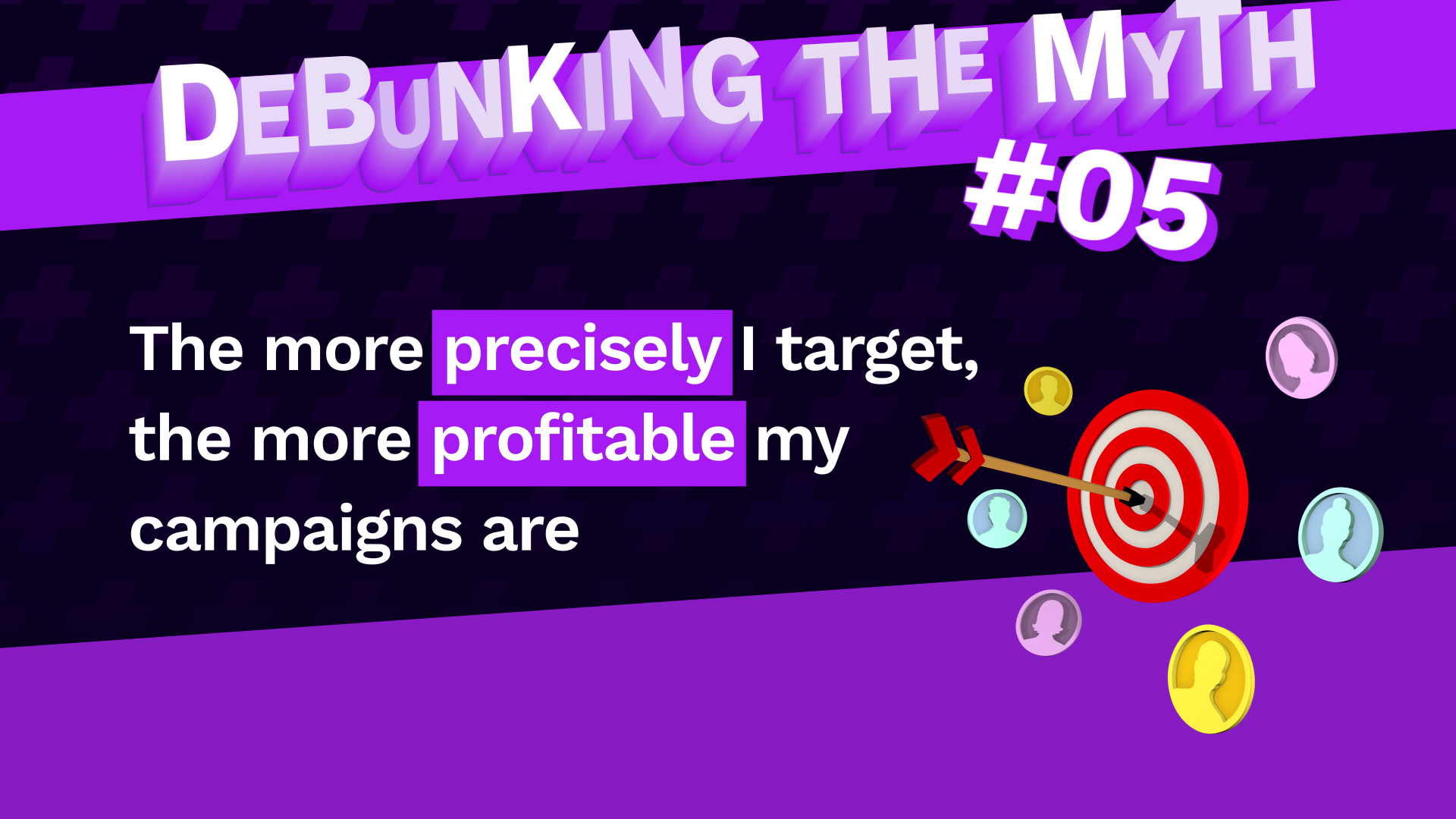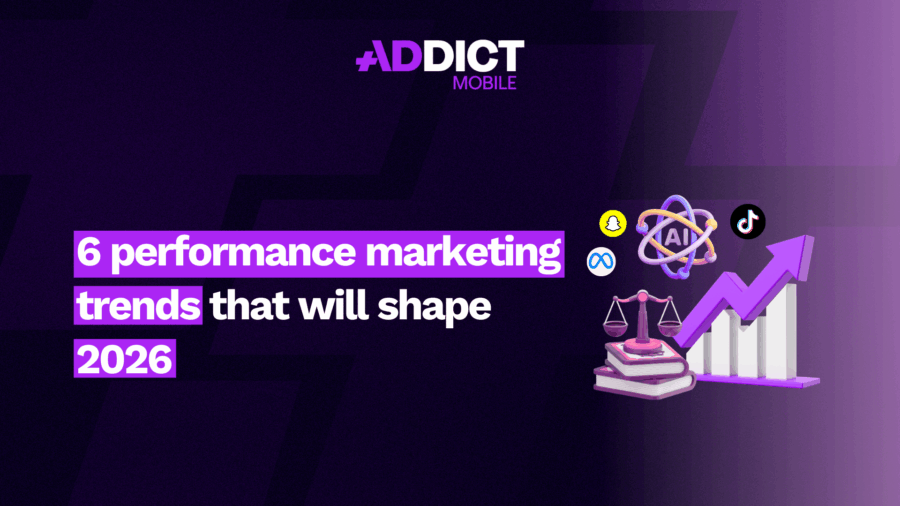DTM #5 : The more precisely I target, the more profitable my campaigns are

User Acquisition myth #5: The more precisely I target, the more profitable my campaigns are
It’s easy to think that precise targeting equals a qualified audience, likely to convert and optimize the profitability of your advertising campaigns.
In reality, this strategy is not always the wisest one, both from a financial and strategic standpoint. Systematically opting for precise targeting can not only be costly but also overlook untapped opportunities, whose positive potential for campaign effectiveness and profitability may be underestimated.
1. Increased CPM
In UA, the choice of targeting directly impacts the cost per thousand impressions (CPM). Indeed, the more precise the targeting, the higher the price. This can be explained in several ways:
- Firstly, very precise targeting restricts the audience. This leads to increased competition among advertisers to capture the attention of this reduced group. As a result, bids increase, resulting in higher CPM.
- Precise targeting is often associated with a more qualified audience and therefore more likely to convert. This is especially true if the chosen optimization goes further down the funnel, such as a purchase or adding to the cart. This is often associated with a higher value by sources, which then increase their rates.
2. Limited learning space for source algorithms
Precise targeting prevents broadcast source algorithms from working optimally.
Indeed, this reduces their learning space by limiting their ability to gather detailed information about the behaviors, interests, tastes, and habits of a wide range of users. This is essential to identify those who do or do not meet the campaign’s objectives. By depriving algorithms of this learning phase, there is a risk of losing potential customers.
These limited pieces of information impact the algorithms’ ability to optimize ad delivery, which normally adapts to users based on the collected information. Data diversity is therefore crucial for effective learning.
3. Limited Variety of Campaigns
Precise targeting can limit the use of certain products developed by distribution sources, which can be highly effective and relevant for acquisition campaigns.
This is particularly true for Advantage+ campaigns on Meta, which rely on machine learning. These automated campaigns allow advertisers to create campaigns that automatically identify the audiences and placements most likely to achieve the set objective.
The same principle applies to TikTok’s Smart Performance Campaigns, fully automated campaigns aimed at maximizing results without manual intervention. The algorithm generates multiple ads from a selection of texts and videos, taking into account user affinities, contributing to improving campaign performance.
In the end, even when opting for a broader targeting, it’s interesting to note that satisfactory results can still be achieved. A concrete example is found in Google app campaigns, where precise targeting is not available. Despite this, many advertisers advertise on this platform and achieve good performance.
4. Creative, a More Effective Targeting Approach
With privacy restrictions, especially the introduction of iOS 14 in 2021 and the arrival of the privacy sandbox, distribution sources have less information about users. This has a dual impact: a lack of information and a decrease in the precision of data and therefore targeting.
At Addict Mobile, we’ve carried out a number of tests and found that using creative as a targeting tool is more effective than precise targeting based on interests or behavior.
Creative targeting goes beyond demographic criteria and focuses on visual elements, messages, and ad formats tailored to each targeted segment. To achieve this, it is essential to understand the interests and behaviors of your target users. Here, we aim to reach a specific audience by using creatives that resonate with them emotionally, aesthetically, or narratively, with attractive visuals, compelling stories, specific colors, etc.
So, finding the balance between relevant and effective targeting while managing costs is a strategic challenge to maximize the profitability of user acquisition campaigns.
NEWS
Article in relation

6 performance marketing trends that will shape 2026
2026 is shaping up to be a pivotal year for performance marketing. With new growth channels emerging, AI-driven automation accelerating, evolving measurement models,...
Published on 2 December 2025
Best ASO tools to grow your app store…
– by Oriane Ineza, Content Marketing Specialist at AppTweak In an increasingly competitive app market, visibility is everything, and a solid, comprehensive set...
Published on 30 November 2025
UA Digest #11 : What’s new this month?
Discover our User Acquisition Digest, your monthly update on the latest trends and news in mobile marketing and user acquisition! AppsFlyer unveils eight...
Published on 26 November 2025

